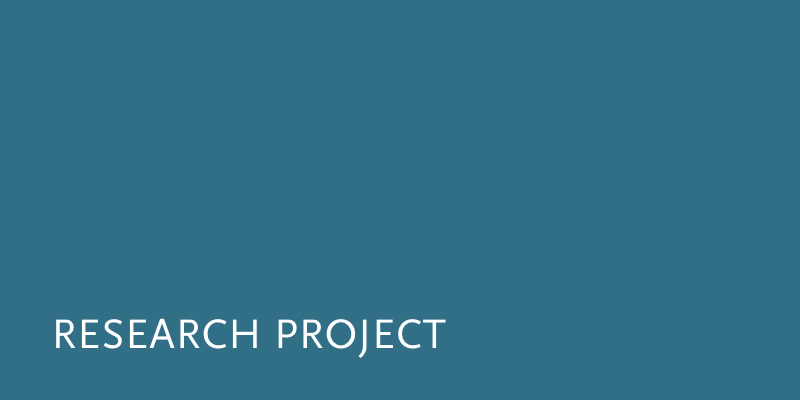
Wahlkompass Digitales
Click here for Wahlkompass 2021
Digital policy will be a focal point of the German federal elections in 2017. More than ever, the elections will deal with questions of the digital age: How do we use data purposefully and justly? How should we react to populism and social bots? How can we effectively protect ourselves against cyber attacks? In their attempt to gain electoral votes, the political parties must be prepared to answer these questions.
The Wahlkompass Digitales (digital election compass) creates transparency by opening up the political parties’ positions on these pressing issues. The HIIG research team analyzed the election programs of six German parties regarding their views on digital policy including work, education, security and health.
This tool illustrates the initiatives and positions of each party in the aforementioned areas of interest and how their positions differ: How do we support digital economy in Germany? Who is committed to more data protection, and who is not? Where do they want to improve digital infrastructure? Which parties commit themselves to the media competency of our children? With this scientific service, interested voters and journalists can better understand which actions the different parties plan to take to address digital policy. Moreover, the project also asks experts to explain the role of specific digital initiatives for these key topics.
Media coverage
| TITLE | MEDIUM/DATE | LINK |
|---|---|---|
| Online-Tool vergleicht Programme Jörg Pohle, Christian Djeffal | Kommune21 27.07.2017 | |
| Vier Jahre Neuland Christian Djeffal | Fritz Radio 27.07.2017 | |
| Hörbar: Wahlkompass Digitales Nataliia Sokolovska | afk M94.5 25.07.2017 | |
| Zwischen Phrasen und klarer Haltung Nataliia Sokolovska | Süddeutsche Zeitung 24.07.2017 | |
| Welche Partei nimmt den Datenschutz ernst? Jörg Pohle | BR24 24.07.2017 | |
| Wahlkompass Digitales: Online-Tool vergleicht Programme der Parteien Alexander von Humboldt Institut für Internet und Gesellschaft | Bochumer Zeitung 24.07.2017 |
Foto: CC BY-NC 2.0 Alessandro | flickr.com
| Duration | 07/2017 – 09/2017 |
| Sponsors | The Digitale Wahlkompass is a project of the Alexander von Humboldt Institute for Internet and Society. Media partner of the project is the Süddeutsche Zeitung. Network partner is media:net Berlin Brandenburg |
 Benedikt Fecher, Dr.Associate Researcher & Former Head of Research Programme: Knowledge & Society
Benedikt Fecher, Dr.Associate Researcher & Former Head of Research Programme: Knowledge & Society Christian Katzenbach, Prof. Dr.Associated researcher: The evolving digital society
Christian Katzenbach, Prof. Dr.Associated researcher: The evolving digital society Jörg Pohle, Dr.Head of Research Program: Actors, Data and Infrastructures
Jörg Pohle, Dr.Head of Research Program: Actors, Data and Infrastructures Larissa WunderlichVisual Communication and Design
Larissa WunderlichVisual Communication and Design Marcel Hebing, Prof. Dr.Associated Researcher: Knowledge & Society
Marcel Hebing, Prof. Dr.Associated Researcher: Knowledge & Society Nataliia SokolovskaHead of Research Programme: Knowledge & Society
Nataliia SokolovskaHead of Research Programme: Knowledge & Society
-
 Christian Djeffal, Prof. Dr.Former Associated Researcher | Project Leader
Christian Djeffal, Prof. Dr.Former Associated Researcher | Project Leader -
 Florian LüdtkeFormer Coordinator Science communication and press
Florian LüdtkeFormer Coordinator Science communication and press -
 Robin P. G. TechFormer Project Manager: IoT & eGovernment
Robin P. G. TechFormer Project Manager: IoT & eGovernment
Other publications
Djeffal, C. (2017). Algorithmen, Roboter, smarte Maschinen: Was sagen die Parteien zu künstlicher Intelligenz? Digital Society Blog. Publication details
Pohle, J. (2017). Der Einsatz von Staatstrojanern und die IT-Sicherheit. Digital Society Blog. Publication details
Djeffal, C. (2017). Schafft 15 Digitalministerien. Süddeutsche Zeitung (215), 2. Publication details
Djeffal, C. (2017). Deutschland braucht nicht ein Digitalministerium, sondern viele! sueddeutsche.de. Publication details
Djeffal, C. & Baack, S. (2017). Kunde, Zeitungsleser oder Aktivist? BürgerInnen im Kontext der Verwaltungsdigitalisierung. Digital Society Blog. Publication details
Fecher, B. & Sokolovska, N. (2017). Digitale Forschungspolitik. HIIG Digital Society Blog. Publication details
Lectures and presentations
Wahlkompass DigitalesWahlsalon Berlin. Open Knowledge Foundation. Open Knowledge Foundation, Berlin, Germany: 01.09.2018
Nataliia Sokolovska
Wahlkompass DigitalesCheckpoint bpb - Die Montagsgespräche. Bpb Berlin, Berlin, Germany: 11.09.2017
Nataliia Sokolovska
Wahlkompass DigitalesWahlsalon in Köln. Open Knowledge Foundation, Köln, Germany: 07.07.2017
Nataliia Sokolovska
